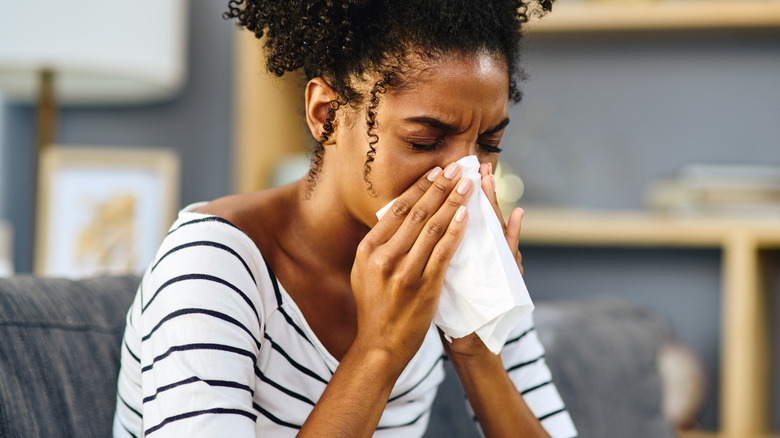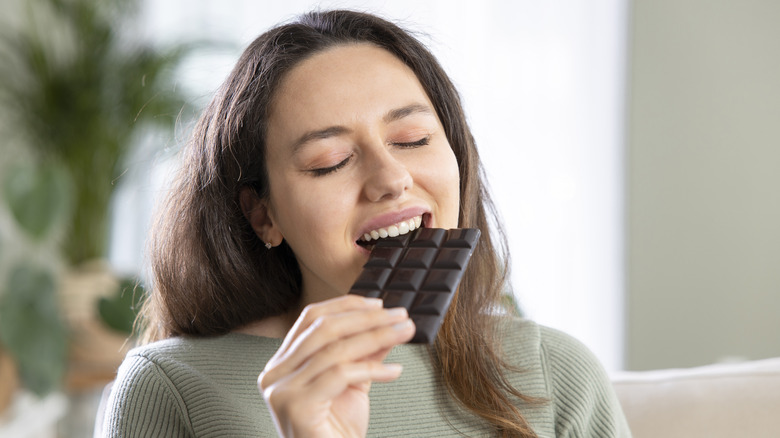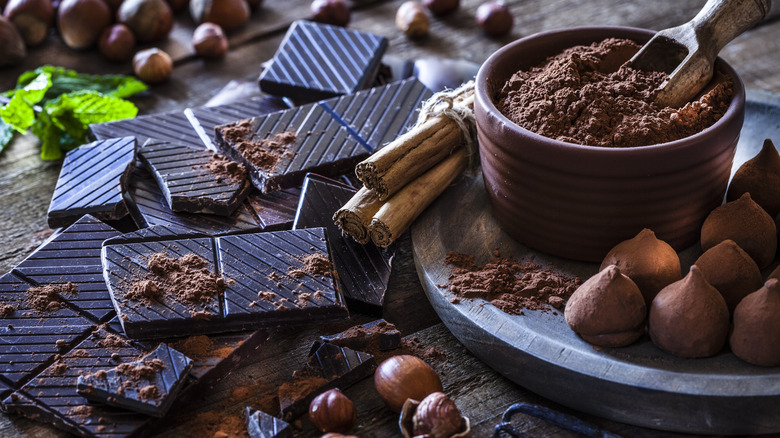
Dark chocolate can be incredibly indulgent. Just a small piece of dark chocolate can transport your taste buds on a delightful journey, combining the slight bitterness of natural cocoa with the sweetness of added sugar. For some individuals, consuming chocolate can tickle the nose enough to trigger a sneeze.
This chocolate-induced sneeze is akin to what causes people to sneeze when they see a bright light or taste other strong flavors. Some even sneeze when they’re around someone they love, according to The Atlantic. Although it might be referred to as an “orgasm of the face,” the scientific name for these sensory reactions is the photic sneeze reflex. According to Daily Mail, these sneezes don’t indicate an allergy to chocolate or bright lights, especially if other allergy symptoms are absent. Instead, a chocolate-triggered sneeze happens when the trigeminal nerves in your eyes, nose, and jaw perceive something tickling your nose. Your brain then sends a signal to sneeze to clear it away.
It’s unclear what causes the photic sneeze reflex

Photic sneeze reflexes may be due to some crosstalk between the trigeminal nerve and other nerves in the brain when exposed to bright light, according to Daily Mail. However, why sneezing might occur as a reaction to food is less clear. It’s possible that theobromine, a compound in chocolate that stimulates the nervous system, affects the vagus nerve, which could also activate the trigeminal nerve to cause a sneeze. The flavonoids in chocolate might also lead to the production of nitric oxide, which dilates small blood vessels in your nose. This sudden increase in blood flow to the nasal cavity could signal to the body that something is tickling your nose, prompting a sneeze.
Why do some individuals sneeze after these triggers while others do not? According to Vox, it might be that the trigeminal nerve and other nerves are slightly closer together in some people, based on their genetics. Photic sneeze reflexes are genetic and can occur in up to 30% of the population. A 2010 study in PLOS Genetics, conducted by 23andMe, surveyed 10,000 people and found that photic sneeze reflexes can be traced to specific genetic markers.
A chocolate sneeze could mean you’re allergic to chocolate

Some individuals might sneeze after consuming chocolate because they are allergic to one of its ingredients. According to Medical News Today, you could be allergic to the cocoa in chocolate if you also experience symptoms such as hives, stomach cramps, or a swollen tongue or lips. If you’re aware of a milk allergy, be cautious as some chocolate contains milk, which can also trigger an allergic reaction. Milk allergies can present immediate symptoms like hives after consumption but might also show later symptoms such as coughing, loose stools, or mucus in the nose and lungs.
Individuals sensitive to caffeine might react because certain chocolates contain as much caffeine as half a cup of coffee. Caffeine sensitivity can manifest as irritability, trouble sleeping, headaches, or digestive issues. Some chocolates may also include soy, tree nuts, or peanuts, causing allergic reactions in sensitive individuals. Soy allergies may present symptoms similar to a cold, while other reactions might include digestive issues, asthma, itchy skin, or brain fog.




